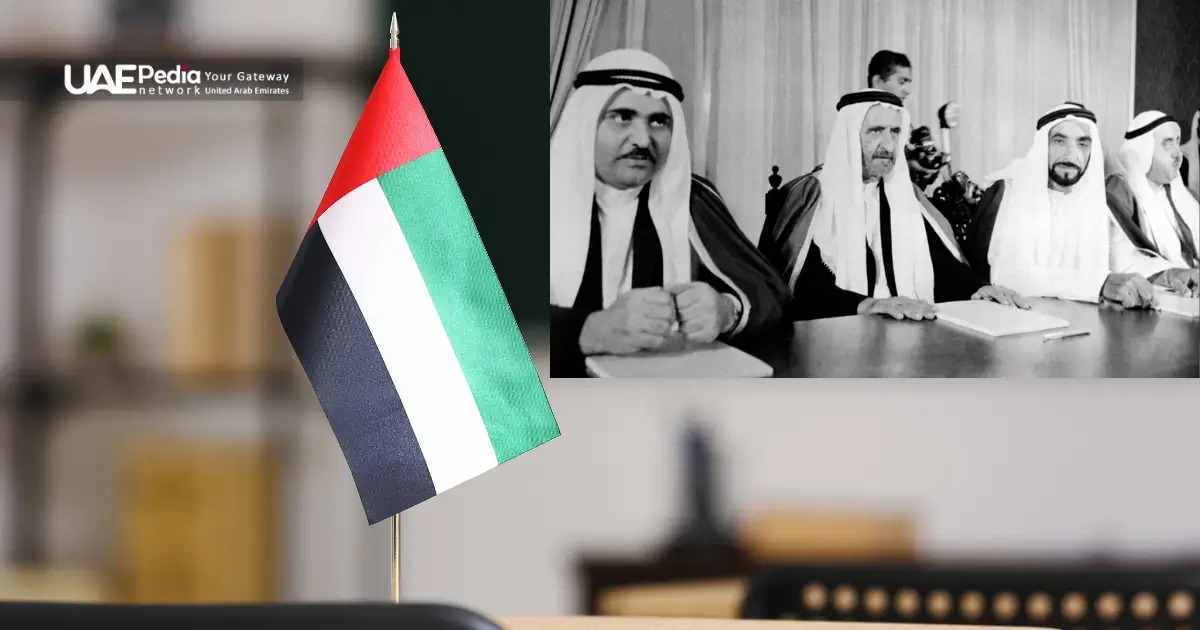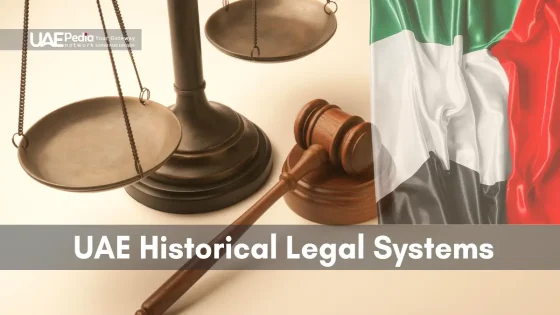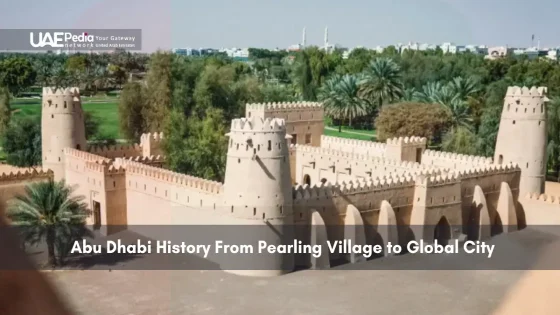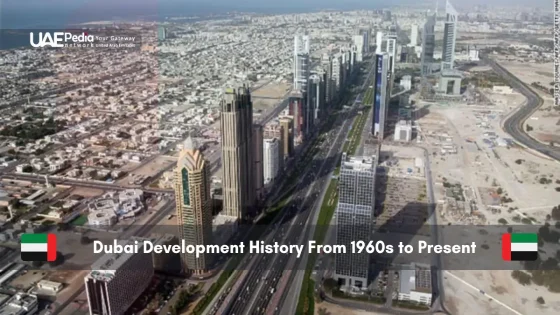Have you ever thought about how the UAE mixes old traditions with new laws? The UAE’s legal system is a mix of Islamic law, tribal customs, and modern rules. This mix makes a system that’s both old and new.
The UAE’s legal history is one of change and growth. It went from each emirate having its own laws to a single federal system. The UAE Constitution, made in 1971, made Islam the official religion and Sharia a key law source.
This set the stage for a legal system that values tradition but also looks to the future.
Now, the UAE’s laws are a mix of federal and local rules. Federal laws cover big areas like crime, business, and work. Local laws handle personal stuff like marriage and who gets what when someone dies.
This way, the UAE keeps its laws the same everywhere but also lets each place have its own touch. This makes the UAE’s legal system one of the best in the MENA region for fairness and following the law.
UAE Historical Legal Systems
The United Arab Emirates (UAE) has a rich history of laws. These laws come from Islamic principles and tribal customs. This mix is key to the UAE’s legal system, shaping modern laws and how the country is run.
Islamic Law Foundations
Islamic law is very important in the UAE’s legal systems. Sharia courts deal with family issues for Muslims. This includes divorce, inheritances, and child custody.
The influence of Islamic law is clear in marriage rules. Muslim women need a male guardian’s okay to marry or remarry.
Tribal Customs and Practices
Tribal customs also shape the UAE’s laws. These customs have been passed down for many years. They help keep society in order and solve disputes.
In rural areas, these customs are still used to settle conflicts. This shows the big role tribal customs play in the UAE’s legal systems.
Pre-Federation Legal Framework
Before 1971, each emirate had its own laws. This period mixed religious law, customs, and new legal ideas. The move to a single system set the stage for today’s legal world.
| Aspect | Pre-Federation | Post-Federation |
|---|---|---|
| Legal Authority | Individual Emirates | Federal Supreme Council |
| Primary Law Source | Islamic Law & Tribal Customs | Constitution & Federal Laws |
| Dispute Resolution | Tribal Elders & Local Courts | Federal & Local Courts |
Constitutional Framework and Legal Principles

The UAE Constitution is the foundation of the country’s laws. It defines the government’s structure, protects basic rights, and guides laws. This framework has helped the UAE grow into a modern state while keeping its culture alive.
Federal Supreme Council Structure
The Federal Supreme Council is at the top of UAE’s government. It has rulers from all seven emirates. This group makes key decisions on policies, affecting both inside and outside the country.
| Emirate | Ruler | Population |
|---|---|---|
| Abu Dhabi | Sheikh Mohamed bin Zayed Al Nahyan | 2.9 million |
| Dubai | Sheikh Mohammed bin Rashid Al Maktoum | 3.3 million |
| Sharjah | Dr. Sheikh Sultan bin Muhammad Al Qasimi | 1.5 million |
| Ajman | Sheikh Humaid bin Rashid Al Nuaimi | 0.5 million |
| Umm Al-Quwain | Sheikh Saud bin Rashid Al Mualla | 0.07 million |
| Fujairah | Sheikh Hamad bin Mohammed Al Sharqi | 0.2 million |
| Ras Al-Khaimah | Sheikh Saud bin Saqr Al Qasimi | 0.4 million |
Rights and Freedoms Under UAE Constitution
The UAE Constitution protects many rights for its people. These include being treated equally, moving freely, and keeping personal property safe. The government supports education, healthcare, and social welfare, showing its commitment to these rights.
Role of Sharia in Modern Legislation
Sharia is a key part of UAE law, affecting many areas. It guides personal laws and legal views. The UAE’s legal system blends Sharia with modern laws, respecting tradition and progress.
Modern Court Systems and Jurisdiction
The UAE court system is a mix of old and new. It has Federal courts, Local courts, and specialized tribunals. Each plays a key role in justice.
Federal Court Structure
Federal courts are at the heart of the UAE’s justice system. They have three levels: Courts of First Instance, Courts of Appeal, and the Federal Supreme Court. These courts deal with federal laws and disputes between emirates.
Local Courts Authority
Some emirates have their own courts. Abu Dhabi, Dubai, and Ras Al Khaimah have their own systems. These courts handle local laws and give quick justice to residents and businesses.
Specialized Courts and Tribunals
Specialized tribunals focus on specific areas. There are commercial courts, labor tribunals, and family courts. They provide expert judgments in complex cases, ensuring fair outcomes.
| Court Type | Jurisdiction | Key Feature |
|---|---|---|
| Federal Courts | National Level | Three-tier system |
| Local Courts | Emirate Level | Independent systems |
| Specialized Tribunals | Specific Legal Areas | Expert judgment |
The UAE’s court system makes justice efficient. New tech like electronic trials has improved things. The UAE is a leader in making courts modern.
Dispute Resolution Mechanisms
The UAE mixes old ways with new in solving disputes. This mix offers many ways to settle conflicts well.
Traditional Mediation Methods
Methods like Majlis are still key in local disputes. They keep peace and respect in communities. Knowing local culture and language is becoming more important.
Modern Arbitration Centers
New arbitration centers have changed how disputes are solved in the UAE. They offer top-notch services, drawing in global businesses. The International Chamber of Commerce and London Court of International Arbitration have helped shape these practices.
Alternative Dispute Resolution
More people are choosing alternative ways to solve disputes in the UAE. Laws like Federal Law No. 6 of 2021 and Federal Decree Law No. 40 of 2023 have helped. Now, mediation is a must for small business disputes.
A big win for the UAE came from the Dubai Court of Cassation (Case No. 486/2024). It made sure talks in settlements stay private. This follows global standards and helps keep dispute solving fair.
| Aspect | Impact on UAE Dispute Resolution |
|---|---|
| Confidentiality | Encourages open discussions in settlements |
| Judicial Efficiency | Reduces court caseloads, promotes early resolution |
| International Appeal | Enhances UAE’s attractiveness for foreign investment |
| Future Trends | Increased use of ADR in family businesses and investor-state disputes |
Evolution of Legal Practice in the Emirates
The UAE legal profession has changed a lot since the country started. It moved from old ways to a modern system. This system mixes international rules with local traditions. The law in the UAE shows how fast the country is growing and its role as a global business center.
UAE law schools are key in shaping the legal field. They offer detailed programs for students. These programs help students deal with today’s legal challenges. Students learn about both local and international laws, preparing them for the world.
The need for lawyers with special skills has grown a lot. Firms want lawyers who know both civil and Islamic laws. This shows the UAE’s legal work is diverse. Here, international companies work alongside local ones.
| Aspect | Impact on UAE Legal Profession |
|---|---|
| Dual Qualifications | High demand, greater career opportunities |
| Specialized Services | Growth in IP and technology law |
| Legal System | Combination of civil and Sharia law |
| Free Zones | DIFC and ADGM operate under English Common Law |
The UAE legal field keeps changing to meet new challenges. New courts and e-court systems show the UAE’s effort to modernize its law. As the UAE fights money laundering and improves financial rules, lawyers need to keep up. They must do this to help their clients well.
Conclusion
The UAE’s legal system has grown a lot. It started with Islamic law and tribal customs. Now, it’s a modern system ready for today’s challenges.
The UAE has mixed international laws with its own traditions. This blend shows its ability to adapt and respect its roots.
Looking ahead, the UAE aims to be a leader in law. It has courts like the ADGM and DIFC, which follow English common law. These courts help with financial and complex business issues.
They offer fast and flexible services. This is great for businesses looking for clear legal rules.
The UAE balances old traditions with new ideas. Its courts follow civil law and Sharia. This helps businesses that work a lot with locals.
This system shows the UAE’s dedication to meeting different legal needs. It also respects the independence of each emirate’s courts.
As the UAE grows, its laws must keep up. It’s focusing on solving disputes without going to court and using new legal tech. This shows the UAE is ready for the future.



















